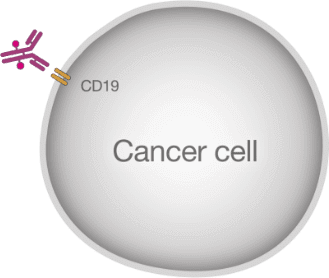ZYNLONTA® uses a “find, bind, and release” strategy
to target cancer cells
ZYNLONTA® is a targeted therapy that:
- 1Finds and binds to the cancer cells
- 2Releases cancer-killing therapy
ZYNLONTA® works by specifically targeting diffuse large B-cell lymphoma (DLBCL) cancer cells, and is different than
traditional chemotherapy.
-
0
ZYNLONTA® contains an antibody that is attached to an anti-cancer drug.
-
1
The antibody finds and binds to a specific area of the cancer cell called CD19.
-
2
The cancer cell absorbs ZYNLONTA®.
-
3
Once inside, ZYNLONTA® breaks apart and the anti-cancer drug is released.
-
4
This causes the cancer cell to die.
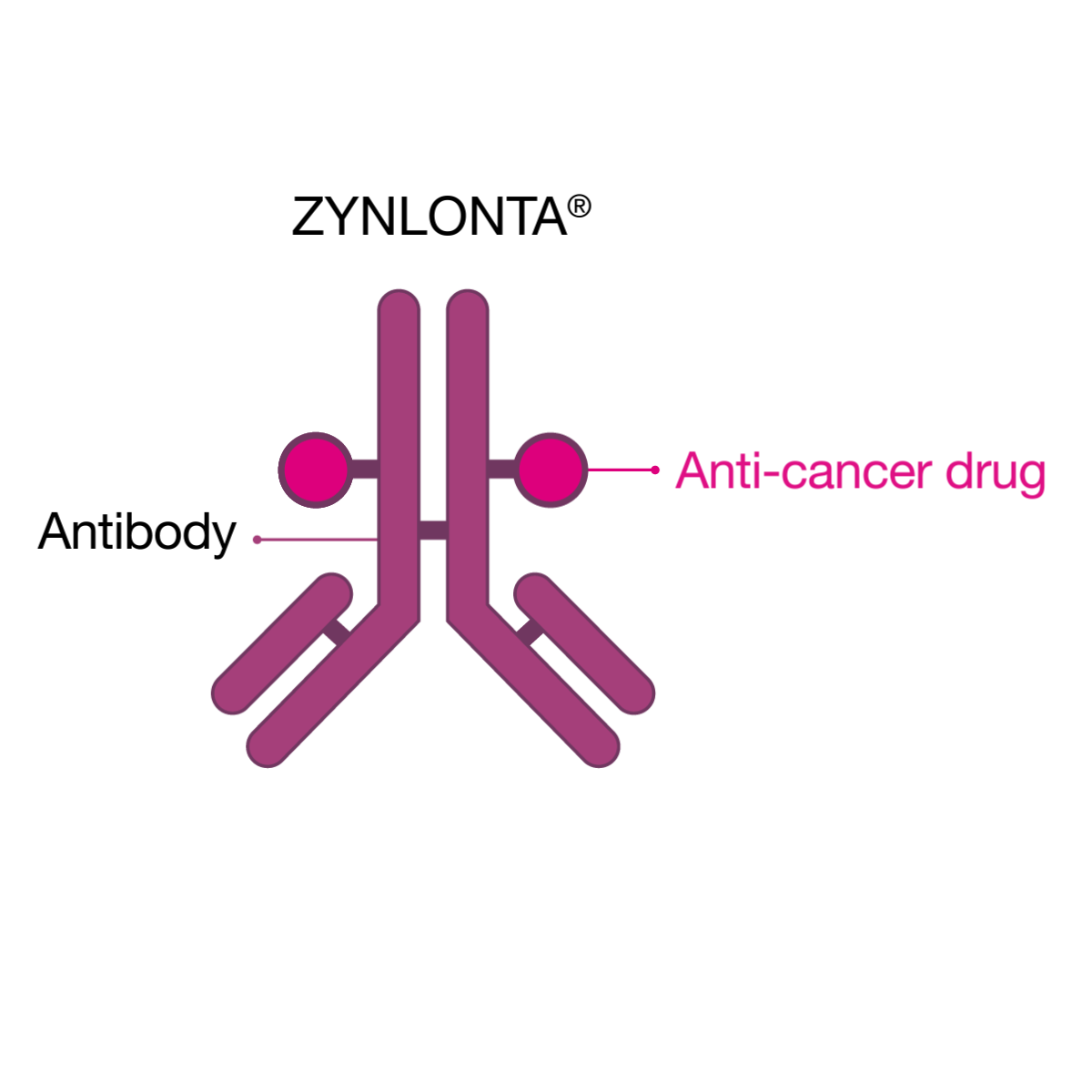
ZYNLONTA® contains an antibody that is attached to an anti-cancer drug.
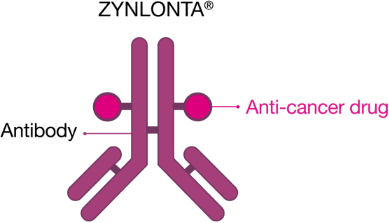
The cancer cell absorbs
ZYNLONTA®.
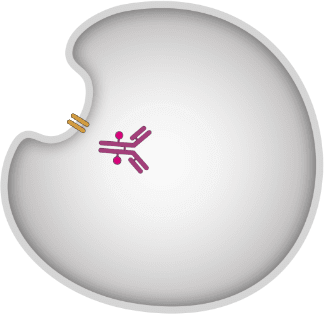
Once inside, ZYNLONTA®
breaks apart and the anti-cancer
drug is released.
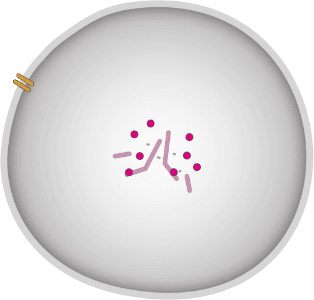
This causes the cancer cell
to die.

ZYNLONTA® was specifically studied in adults who needed their next DLBCL therapy option after trying 2 or more past therapies
ZYNLONTA® is for people living with…
Relapsed cancer:
The cancer came back after past therapies worked
OR
Refractory cancer:
Therapy/therapies have not worked or no longer work

